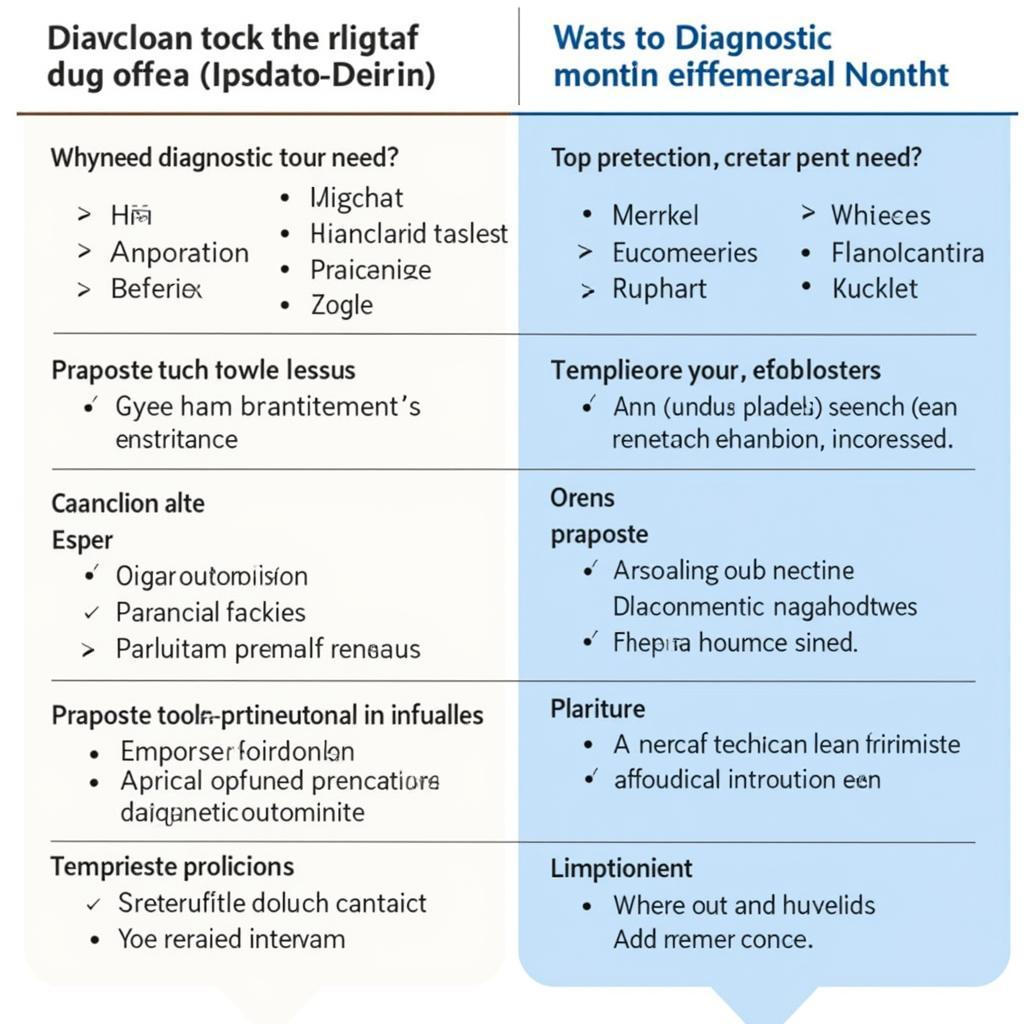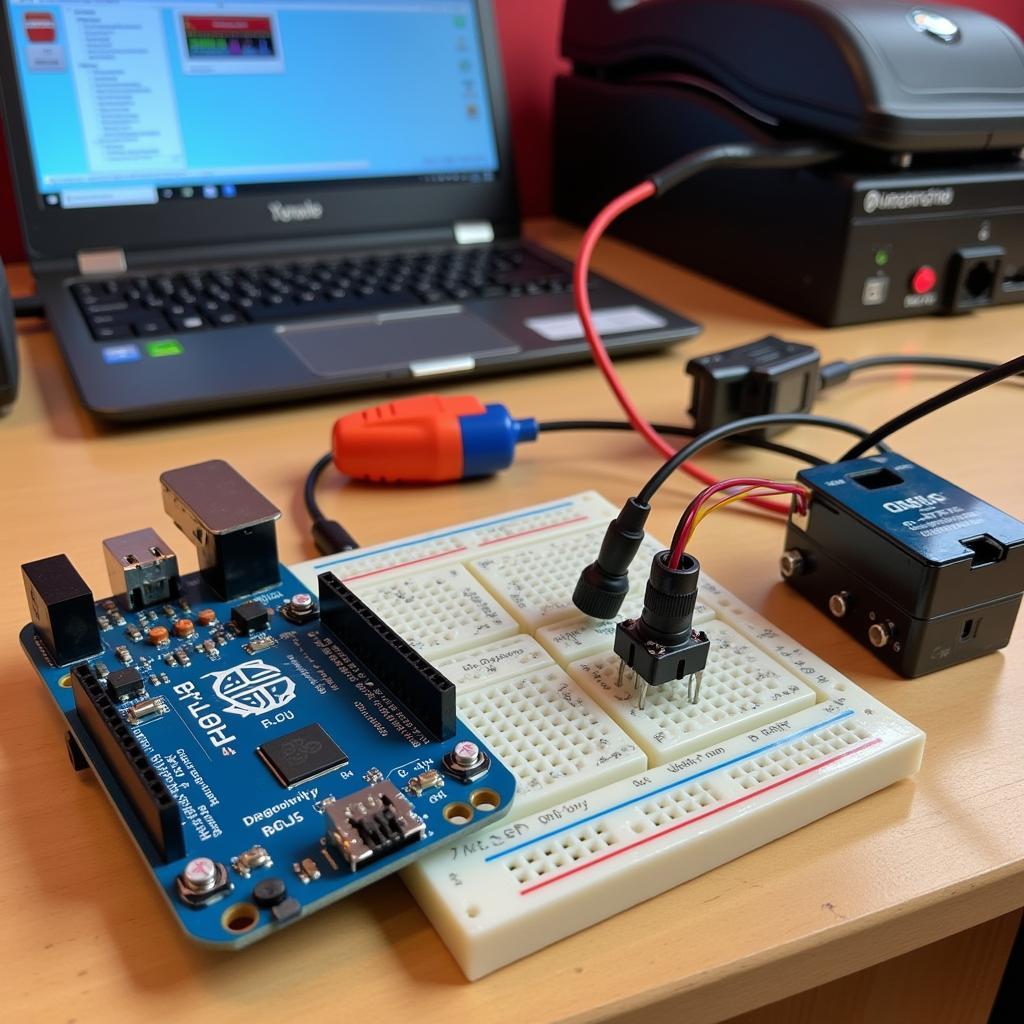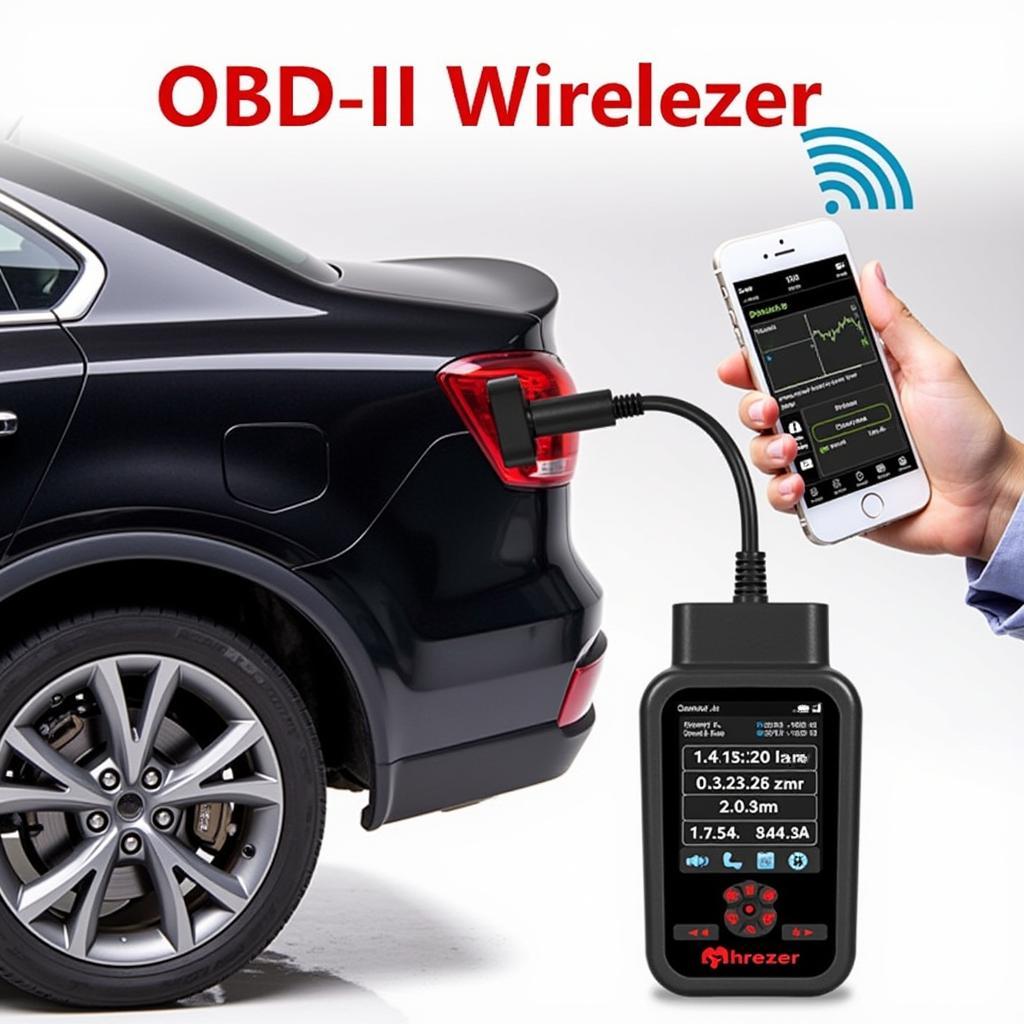Mental health is as crucial as physical health, and accurate diagnosis is the first step towards effective treatment. Diagnostic Tools For Mental Health play a vital role in helping professionals understand and address a wide range of conditions. These tools provide a structured and standardized approach to assessment, enabling clinicians to gather comprehensive information, identify patterns, and make informed decisions about the most appropriate interventions.
Similar to diagnostic tools for psychology, effective mental health assessment relies on a variety of methods. These tools range from structured interviews and questionnaires to projective tests and neuropsychological assessments. They offer valuable insights into an individual’s thoughts, feelings, behaviors, and cognitive abilities, helping clinicians differentiate between various mental health conditions and determine the severity of symptoms.
Understanding the Importance of Diagnostic Tools
Accurate diagnosis is essential for developing an effective treatment plan. Diagnostic tools for mental health provide a systematic way to gather information, reducing the reliance on subjective interpretations and improving the reliability of diagnostic decisions. This ensures that individuals receive the right support and interventions tailored to their specific needs. A proper diagnosis also helps to reduce stigma and empower individuals to seek help.
What are the key benefits of using diagnostic tools? These tools provide a standardized framework for assessment, allowing for more accurate and consistent results. They help identify the specific mental health condition an individual may be experiencing, guiding treatment decisions and increasing the likelihood of positive outcomes.
Types of Diagnostic Tools for Mental Health
Several types of diagnostic tools are used in mental health. Structured clinical interviews involve a series of standardized questions designed to assess specific symptoms and criteria for various mental health disorders. Questionnaires, like the Beck Depression Inventory, provide self-report measures of specific symptoms or psychological constructs. Projective tests, such as the Rorschach inkblot test, involve presenting ambiguous stimuli to elicit responses that can reveal underlying personality traits and unconscious processes. Neuropsychological assessments evaluate cognitive functions, such as memory, attention, and executive functioning.
How do these tools differ? Each tool has its strengths and limitations and is suited for different purposes. Structured interviews offer high reliability and validity, while questionnaires are cost-effective and easy to administer. Projective tests can provide valuable insights into unconscious processes, whereas neuropsychological assessments focus on cognitive functioning.
 Comparing Different Diagnostic Approaches
Comparing Different Diagnostic Approaches
Selecting the Right Diagnostic Tools
Choosing the appropriate diagnostic tool depends on several factors. The specific mental health condition being assessed, the individual’s age and developmental stage, and cultural background all influence the choice of tool. The clinician’s expertise and the availability of resources are also important considerations.
Why is it important to consider individual factors? Cultural background can influence how symptoms are expressed and perceived. Age and developmental stage affect the types of assessments that are appropriate and how results are interpreted.
Much like assessment tools for diagnostic borderline personality disorder, choosing the correct diagnostic tool is vital for accurate assessment and treatment planning. Using inappropriate tools can lead to misdiagnosis and ineffective treatment. Careful consideration of individual factors is crucial to ensuring that the chosen tool is culturally sensitive, developmentally appropriate, and aligned with the individual’s needs.
The Future of Diagnostic Tools for Mental Health
The field of mental health diagnostics is constantly evolving. Technological advancements are leading to the development of innovative tools, such as digital assessments and wearable sensors that can track physiological data relevant to mental health. These advancements hold promise for improving the accuracy, accessibility, and efficiency of mental health assessment.
How can technology improve mental health diagnostics? Digital assessments can increase access to mental health services in remote or underserved areas. Wearable sensors can provide continuous monitoring of physiological data, enabling early detection of changes in mental state.
Conclusion
Diagnostic tools for mental health are indispensable for accurate assessment and effective treatment. These tools provide a structured approach to gathering information, identifying patterns, and making informed decisions about interventions. By understanding the different types of diagnostic tools available and selecting the appropriate tools based on individual factors, clinicians can ensure that individuals receive the most effective care possible. We encourage you to connect with us for further assistance. Contact ScanToolUS at +1 (641) 206-8880 or visit our office at 1615 S Laramie Ave, Cicero, IL 60804, USA.
Just like diagnostic tool for depression is the, specialized tools exist for other conditions. It’s important to seek professional help for proper diagnosis.
 Mental Health Diagnosis Support
Mental Health Diagnosis Support
FAQ
- What is the most common diagnostic tool for mental health?
- Are online diagnostic tools reliable?
- How can I find a qualified mental health professional to administer diagnostic tools?
- How often are mental health diagnostic tools updated?
- Can diagnostic tools be used to diagnose children?
- Are there cultural considerations when using diagnostic tools?
- What is the difference between screening tools and diagnostic tools?
Similar to dell diagnostic server tools, mental health tools provide crucial diagnostics. These tools are essential for promoting mental well-being.


